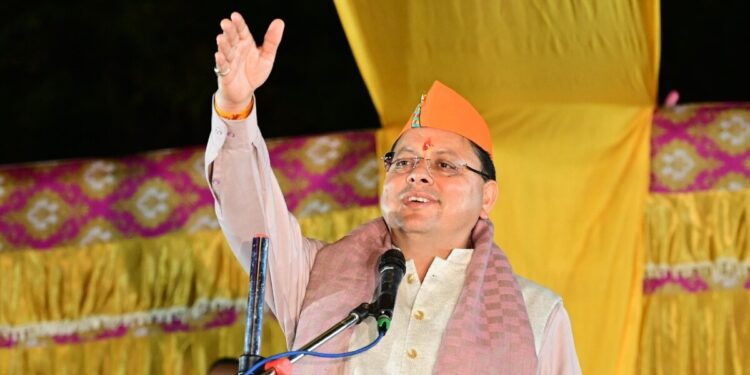On Monday, the Common Civil Code (CCC) has been implemented in Uttarakhand, making it the very first state in India to put this law into effect. It’s aimed at implementing personal laws across all religions. The CCC Act of Uttarakhand regulates the laws relating to marriage and divorce, succession, live-in relationships and related matters. It sets equal marriageable age for men and women, grounds of divorce and procedures across all religions, and bans polygamy and ‘halala’.
Pushkar Singh Dhami stated, “Common Civil Code has been fully implemented in Uttarakhand from this very moment and the constitutional and civil rights of all the citizens of the state of Uttarakhand have become equal and from this very moment, women of all religions have got equal rights”. CM Dhami also launched a rules manual for the CCC and a portal for applications from the CM’s camp office in Dehradun on Monday.
About CCC
CCC is a set of laws that focuses to standardise personal laws across religions. The move has created both support and criticism, with proponents asking for equality and opponents warning of potential societal divisions. It addresses several societal issues, including marriage, divorce, inheritance, and live-in relationships. Key aspects of the law include the registration of marriages, divorces, and live-in relationships.
CCC IN UTTARAKHAND
During the 2022 Uttarakhand Assembly elections, Chief Minister Pushkar Singh Dhami had promised to implement the Common Civil Code (CCC) if re-elected. He formed a five-member committee led by Justice Ranjana Prakash Desai to draft the code, which incorporated feedback from over 2.3 lakh citizens.
On February 2, 2024, the 740-page draft was presented to the Chief Minister and was approved by the cabinet on February 4. In the state assembly it was tabled on February 6 and passed the next day. Governor Lt Gen Gurmit Singh (retd) gave his approval on February 28, and President Droupadi Murmu signed the bill on March 11.
On January 27, the CCC got implemented in Uttarakhand, coinciding with Prime Minister Narendra Modi’s scheduled visit to Dehradun. “CCC is just an offering made by our state in the great ‘yagya’ being performed by the Prime Minister to make the country a developed, organised, harmonious and self-reliant nation,” said Dhami on Sunday.
WHO COMES UNDER CCC?
The act applies to the entire Uttarakhand and is also effective on the residents of the state living outside Uttarakhand. Scheduled Tribes and protected authority-empowered persons and communities are exempted from the parameters of CCC.
HOW TO USE ONLINE PORTAL?
The online portal, launched by the CM, will be available for use by the citizens of Uttarakhand starting next week. It will allow residents to register marriages, divorces, succession rights, live-in relationships, and their termination. The entire process can be completed from the home using a mobile phone, with applicants able to track the status of their applications via email or SMS.
MARRIAGE UNDER CCC
The CCC standardises the legal marriage age for men and women at 21 and 18 years, respectively.
It prohibits both polygamy and ‘halala’ across all communities. Halala is a controversial Islamic marriage practice where a divorced woman marries another man, then divorces him to remarry her former husband.
While marriage rituals can be performed under religious customs, registration within 60 days is mandatory.
Registration of live-in relationships will be mandatory.
Marriages solemnised before March 26, 2010, or outside Uttarakhand, can be registered within 180 days of the Act coming into effect. This is not a mandatory requirement.
Any soldier, air force personnel engaged in an expedition/actual warfare, or a mariner at sea, can make a ‘privileged will,’ for which rules have been kept flexible.
The CCC creates a simplified framework for the creation, cancellation, and modification of wills, as well as supplementary documents, known as codicils, under testamentary succession.
DIVORCE UNDER CCC
In CCC, the grounds for divorce for husband and wife are the same. This means that the husband can now give divorce to his wife, and the wife can also demand divorce on the same basis.

















Comments